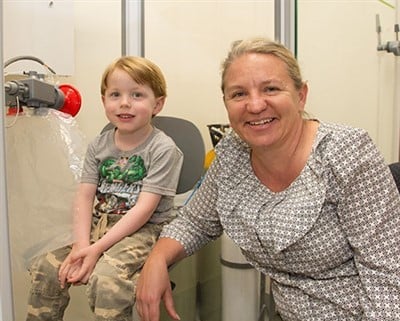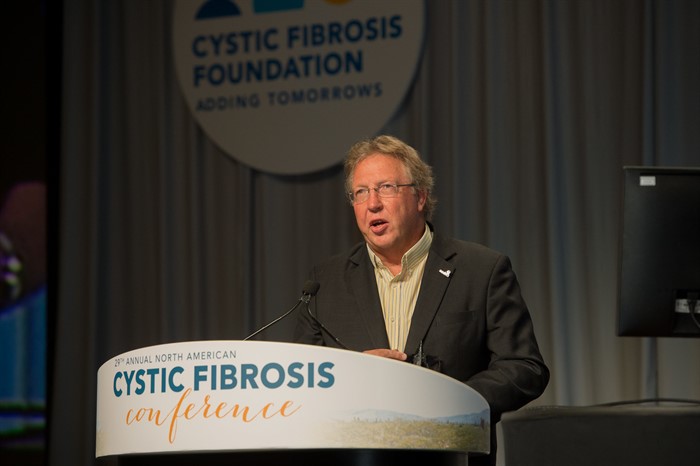Search

News & Events
Born with cystic fibrosis, now research is her life’s workWhen Ingrid Laing was born, the outlook for kids with cystic fibrosis was bleak. Her parents were told she might make it to 20 if she was lucky.

News & Events
Healthy kids help medical researchThat's why Melissa has signed up her four year old healthy son Odin for a study at Perth's The Kids Research Institute Australia that will help kids with cystic fibrosis.

News & Events
Prestigious award for cystic fibrosis researcherProfessor Stephen Stick has been awarded the prestigious Richard C. Talamo Distinguished Clinical Achievement Award from the US Cystic Fibrosis Foundation.
Research
The association between Staphylococcus aureus and subsequent bronchiectasis in children with cystic fibrosisDe novo S. aureus acquisition at age 3 is associated with later bronchiectasis and FEF25-75 in children with CF
Research
Multiple-breath washout outcomes are sensitive to inflammation and infection in children with cystic fibrosisThe lung clearance index may be a useful surveillance tool for monitoring the presence and extent of lower airway inflammation and infection
Research
Early lung disease in infants and preschool children with cystic fibrosis: What have we learned and what should we do about it?This review summarizes what we have learned about early lung disease in children with CF and discusses the implications for clinical practice and research
Research
Matrix metalloproteinase activation by free neutrophil elastase contributes to bronchiectasis progression in early cystic fibrosisThe aim of this study was to assess if MMP activation positively correlates with neutrophil elastase activity, disease severity and bronchiectasis in young...
Research
Feasibility of parental collected nasal swabs for virus detection in young children with cystic fibrosisNo evidence to demonstrate relationships with symptoms and viruses, prolonged symptoms, prolonged shedding or patterns of virus infections in CF
Research
Risk factors for bronchiectasis in children with cystic fibrosisWe sought to determine risk factors for the onset of bronchiectasis, using data collected by the Australian Respiratory Early Surveillance Team for Cystic...
Research
Progression of early structural lung disease in young children with cystic fibrosis assessed using CTCross-sectional studies implicate neutrophilic inflammation and pulmonary infection as risk factors for early structural lung disease in infants and young...
